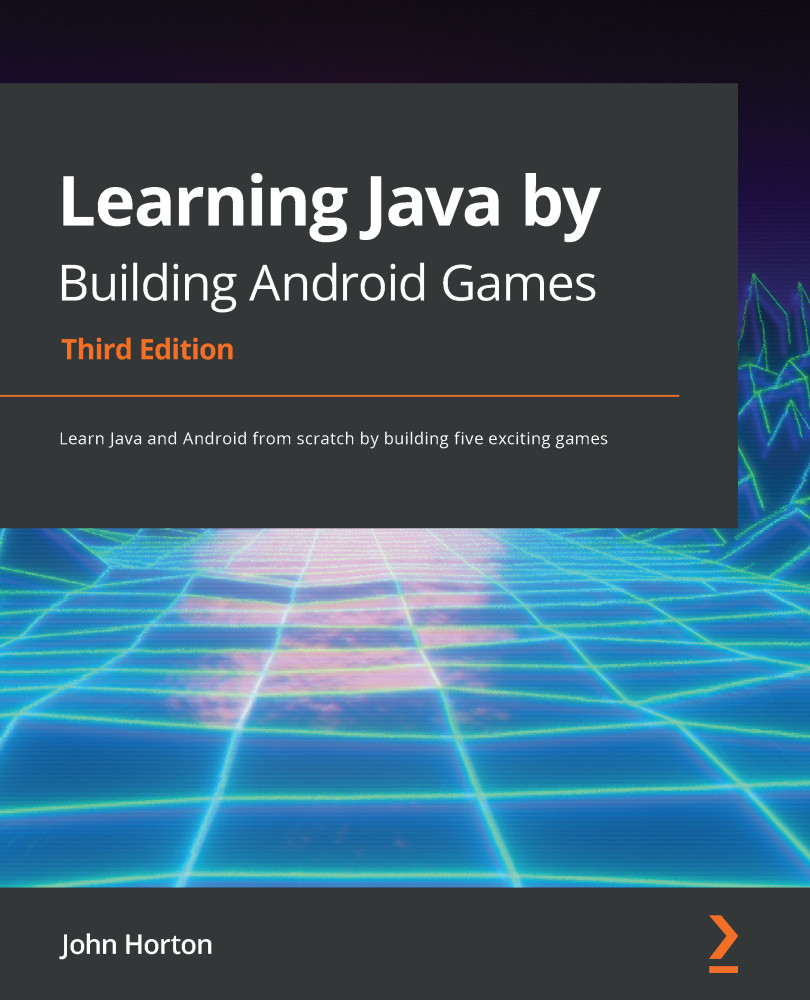-
Book Overview & Buying

-
Table Of Contents

Learning Java by Building Android Games - Third Edition
By :

Learning Java by Building Android Games
By:
Overview of this book
Android is one of the most popular mobile operating systems today. It uses the most popular programming language, Java, as one of the primary languages for building apps of all types. Unlike most other Android books, this book doesn’t assume that you have any prior knowledge of Java programming, instead helps you get started with building Android games as a beginner.
This new, improved, and updated third edition of Learning Java by Building Android Games helps you to build Android games from scratch. Once you've got to grips with the fundamentals, the difficulty level increases steadily as you explore key Java topics, such as variables, loops, methods, object-oriented programming (OOP), and design patterns while working with up-to-date code and supporting examples. At each stage, you'll be able to test your understanding by implementing the concepts that you’ve learned to develop a game. Toward the end, you’ll build games such as Sub Hunter, Retro Pong, Bullet Hell, Classic Snake, and Scrolling Shooter.
By the end of this Java book, you'll not only have a solid understanding of Java and Android basics but will also have developed five cool games for the Android platform.
Table of Contents (24 chapters)
Preface
Chapter 1: Java, Android, and Game Development
 Free Chapter
Free Chapter
Chapter 2: Java – First Contact
Chapter 3: Variables, Operators, and Expressions
Chapter 4: Structuring Code with Java Methods
Chapter 5: The Android Canvas Class – Drawing to the Screen
Chapter 6: Repeating Blocks of Code with Loops
Chapter 7: Making Decisions with Java If, Else, and Switch
Chapter 8: Object-Oriented Programming
Chapter 9: The Game Engine, Threads, and the Game Loop
Chapter 10: Coding the Bat and Ball
Chapter 11: Collisions, Sound Effects, and Supporting Different Versions of Android
Chapter 12: Handling Lots of Data with Arrays
Chapter 13: Bitmap Graphics and Measuring Time
Chapter 14: Java Collections, the Stack, the Heap, and the Garbage Collector
Chapter 15: Android Localization – Hola!
Chapter 16: Collections and Enumerations
Chapter 17: Manipulating Bitmaps and Coding the Snake Class
Chapter 18: Introduction to Design Patterns and Much More!
Chapter 19: Listening with the Observer Pattern, Multitouch, and Building a Particle System
Chapter 20: More Patterns, a Scrolling Background, and Building the Player's Ship
Chapter 21: Completing the Scrolling Shooter Game
Chapter 22: What Next?
